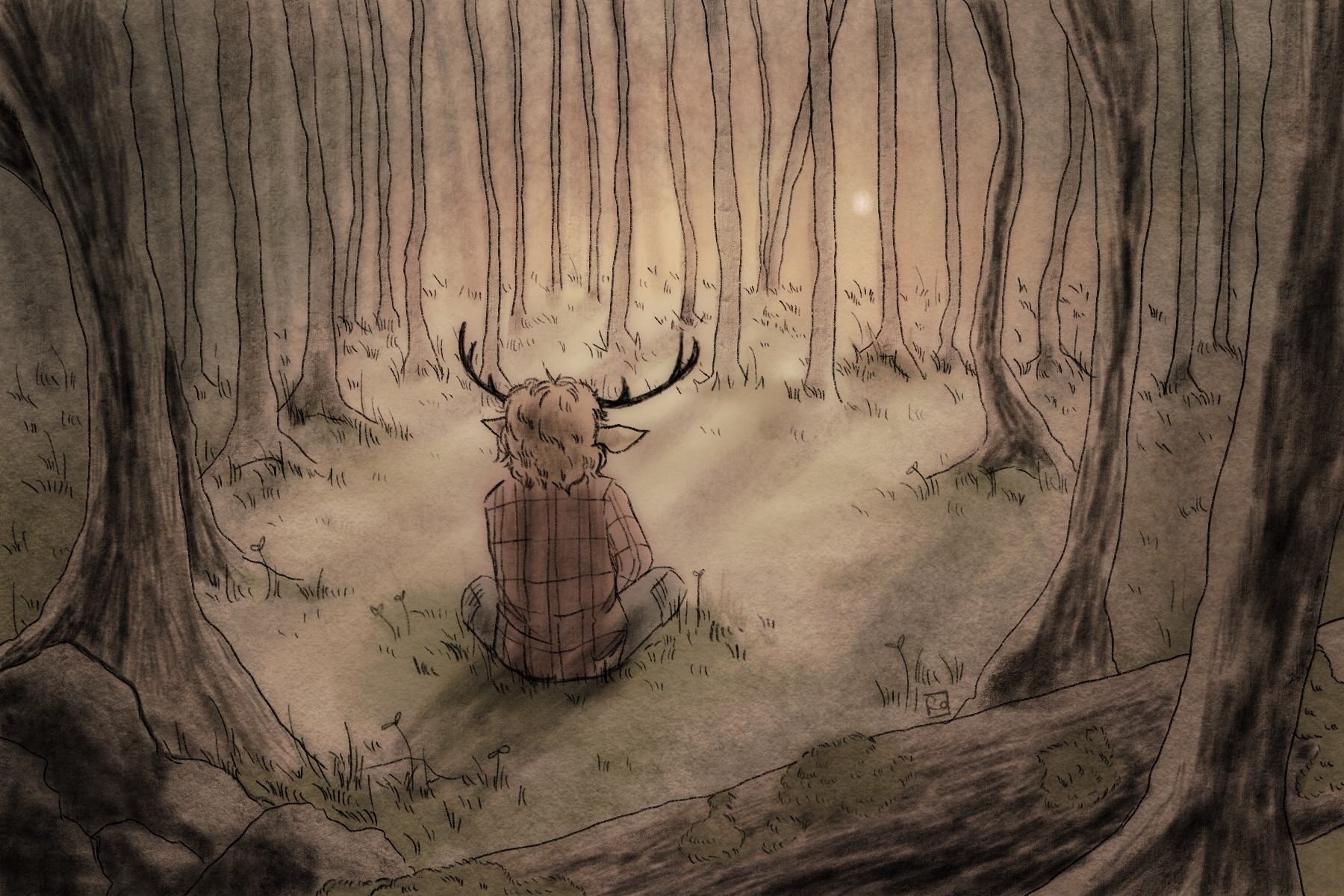The first season of “Sweet Tooth” comprises eight 50-minute episodes — and they’re easily worth it. With a 98% critic score from Rotten Tomatoes, the show manages to pull off the tender subject matter of a pandemic with its scary, sweet and just-believable-enough tone.
“Sweet Tooth” is based on Jeff Lemire’s graphic novel series published by DC Comics. The show is set in the aftermath of “the Sick,” a mysterious pandemic that kills most of the world’s human population. Those who are left live in isolated clusters, fearing contamination and the Last Men.
The Last Men are a group dedicated to hunting down hybrids, the weirdest and yet most charming part of the “Sweet Tooth” universe. At the same time as the Sick began, some babies began to be born with animal features, from those as minor as a pig’s snout and ears, to those as major as a turtle’s shell, scales and shyness.
Watching this all take place in the aftermath of a pandemic can be a bit unnerving. The Guardian quotes one character who comments on life in the post-Sick world: “It sucks. No rules. No laws. Once the internet went down, it was over.” The Guardian’s Lucy Mangan then comments: “We pause to say a silent prayer that Covid never affected wifi coverage.”
The story soon zooms in on Gus, a young, part-deer hybrid who spends his early childhood in what once was Yellowstone National Park. When Gus’ father dies protecting his son from Last Men, Gus finds himself living alone, until a tall stranger he calls Big Man stumbles across his path. Gus clings to the gruff, recalcitrant man, who eventually agrees to take the kid to Colorado to find his mother, who separated from him during the chaos of the Sick.
Throughout most of the first season of “Sweet Tooth,” this young, innocent boy learns the ropes from a decidedly un-innocent man, reminiscent of Cormac McCarthy’s classic novel “The Road.” Between references to “The Road,” “The Walking Dead” and perhaps even “Paddington 2,” Netflix’s “Sweet Tooth” walks an unusual path between standard genres and tropes.
This is the series’s greatest strength. Unlike Jeff Lemire’s critically-acclaimed and much darker comic, Netflix’s “Sweet Tooth” balances sweet and scary notes like a chef adding ingredients to a signature soup.
In one moment, the effervescently optimistic Gus endears himself to “Big Man” Tommy Jeppard with such lightness that older viewers may roll their eyes, needing a breath from the thick, sappy tone. In the very next moment, however, danger jettisons viewers to the edge of their seats.
Another force that counteracts the sappiness of “Sweet Tooth” is its realistic dialogue, which forces out the occasional chuckle in its viewers. For example, when Gus first sees Jepp, who used to play professional football, Gus tries to scare him by claiming that his dad will return any minute:
“He’s bigger than you,” Gus calls. “They don’t make them bigger than me,” Jepp responds, deadpan.
Later, after Jepp reluctantly takes the boy under his wing, Gus wakes up in a panic: “I had a bad dream,” he says. “You’ll get used to them,” Jepp replies.
“Sweet Tooth” also tracks some very different, non-deadpan characters. There’s Adiya Singh, a doctor reluctantly looking for a cure for the Sick in order to save his wife’s life. Aimee, a former psychologist, radically cares for others even after the virus shuts her practice down. And then there is Bear, a charismatic, pure-hearted teenager who “hates grownups” and devotes her life to saving hybrids.
The actors who play these and other characters make up the heart of the show’s tone, which is equal parts fanciful and grounded. Nonso Anozie, who plays Jeppard, for instance, holds his face in a kind of rigid expression of non-commitment — the sort of expression one would expect from someone who refuses to get involved. Adeel Akhtar makes Adiya’s amalgam of charisma and baseline anxiety believable, and Sefania LaVie Owen infuses Bear with such confidence that it may compel younger, female viewers to look up to her as an icon.
Unfortunately, Christian Convery, who plays Gus, fails to convince his audience that Gus is an actual person rather than a work of fiction. As Convery is only 11 years old, viewers can’t blame him for failing to emote intense emotions such as anger and fear. Convery’s resting expression of hopeful innocence, however, lends itself well to the character, so overall he passes as an actor.
The collection of heroes and semi-heroes who populate “Sweet Tooth” are easy to root for because it’s easy for viewers to hope to see themselves in them. Adiya, Bear, Jepp and others also resonate because of their diversity — not simply in terms of nationality or ethnicity, but also regarding the various life stages, personalities and beliefs that they embody. Bear and Jepp despise each other (their banter is one of the joys of the series), but their contrasting viewpoints, ages and personalities create the friction that makes the series feel somehow more three-dimensional.
The series’s score also brings the show’s themes into the real world. Twangy, simple songs that recall Bon Iver and Bob Dylan invigorate the series. Parts of the soundtrack bring chills to the spine, while others even invite viewers to sing along with the words. Some are perfect for a study playlist, while others ache to be sung aloud with the windows down. All of them, however, are “light colors,” if that is possible for sound — blue and yellow and green, childlike and ambient.
The songs sound natural, which is the atmosphere the creators of “Sweet Tooth” aspire to create. One of the most overt themes in the series is that humans’ disregard for nature kickstarted their own demise. Referring to hybrids, Aimee says the following words: “They’re the good part of us, without the complications. Nature doesn’t want us back.”
This idea may be bleak, but the childlike forward momentum of hope forces the audience’s gaze toward a non-apocalyptic future. Gus, in particular, prompts the other characters to reluctantly approach the idea that things might turn out all right after all, as he leads his older friends into the kind of straightforward, morality-based decision-making that goes against the grain of the world they grew up facing.
The timeliness of the series’s themes took its own creators by surprise. According to Ars Technica, Lemire’s comic began to take on flesh as a Netflix series long before the pandemic began. In fact, according to Variety, after the pilot was filmed in 2019 and the pandemic forced staff online, writers met over Zoom to discuss their work.
“Sweet Tooth” is not perfect, but it walks a unique line between genres that once appeared to be dichotomous rather than near neighbors. Despite the occasional moments of cheesiness (and the occasional awful claymation), “Sweet Tooth” deftly navigates the charged waters of horror, comfort and hope.
Hope, in fact, is what wins the show to its audience. Right now, near-cheesy may be what we need.















